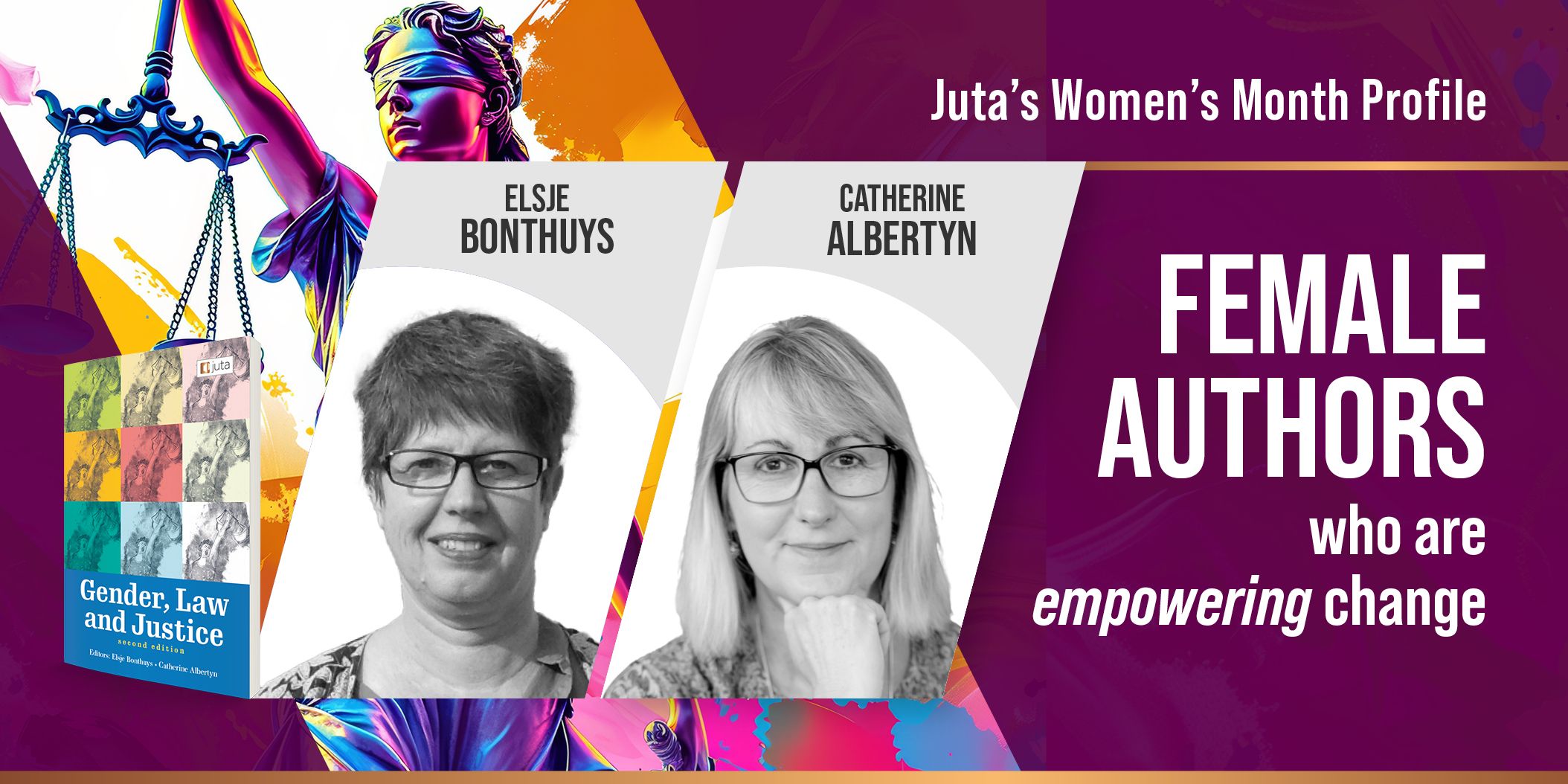- Home
- Products & Services
- About
- Blog
- Faq
- Contact Us
Meet Prof. Else Bonthuys and Catherine Albertyn, both distinguished senior legal academics at Wits and the brilliant minds behind the book Gender, Law and Justice, which saw its second edition hit the shelves in 2023, published by Juta.
Their journey takes us back to a time when the academic scene was starkly different. As students and young academics, they witnessed a world where female and black lecturers were a rarity. The exceptions were few, such as Wits having two female deans in the 1980s, but for the most part, women found themselves relegated to roles like secretaries or administrative assistants, often underpaid and undervalued—and overwhelmingly white.
Fast forward to today, and the tides have shifted significantly. For Women's Month, we had the exciting opportunity to sit down with Prof. Bonthuys and Catherine Albertyn to delve into their experiences, insights, and the strides still needed in the fight for gender equality in academia. Here's how our conversation unfolded!

Juta: Tell us more about yourself, what you do and how you got there.
EB & CA: We are both senior legal academics at Wits, and the editors and contributing authors of the book Gender, Law and Justice, of which the second edition was published by Juta in 2023.
Juta: What were the challenges you faced as a woman in the industry?
EB & CA: When we were students and young academics, there were almost no female or black lecturers. With some exceptions (for example Wits had two women deans in the 1980s), women were mostly employed in the faculties as secretaries and administrative assistants, at lower salaries and with lower status. Almost all these women were white. Since then, the composition of the academic staff has changed considerably and we now have black women as professorial colleagues, but women still dominate in administrative posts.
Juta: What inspired you to keep pushing despite the challenges face?
EB & CA: To some extent, academia reflects wider trends in the South African labour market that we discuss in our book. Generally, more women than men are unemployed, or work in unregulated, low paid occupations, with African women the most disadvantaged. Even within formal employment, which is legally regulated, structural inequalities persist. The gap between women’s and men’s earnings is of particular concern. According to the International Labour Office, South Africa’s ‘factor weighted gender pay gap’ – a figure which compares earnings of men and women in the same jobs who have the same educational qualifications, experience, and working hours - is amongst the highest amongst all middle income countries. The reasons for this are embedded in the ways in which gender manifests across labour market structures.
The first reason is that women are disproportionately found in certain sectors, like domestic work, nursing, teaching, cleaning and other work which is generally associated with “typically feminine” qualities. Compared with male dominated industries like engineering and mining, pay in these sectors tends to be lower and working conditions less favourable. Women whose livelihoods are criminalized, like sex workers, are particularly vulnerable to exploitation and violence in their work.
A second feature is that even within the same sectors and organisations women tend to be employed at more junior levels than men, associated with lower pay and less generous employment benefits.
A third factor, largely invisible in employment law, is women’s overwhelming responsibility for housekeeping and caring work in their homes. This work is not paid, despite the fact that the International Labour Office estimates it to be worth more than 6% of the country’s GDP. This disproportionate burden on women affects their abilities to participate in paid labour on an equal footing with men and leads to more women doing part-time, low paying work.
The past decades have seen significant changes in legislation, including advances on sexual harassment. However, lack of effective implementation and persisting sexism within the workplace and in homes limit the benefits which legal changes could bring about.
Juta: Do you have any encouraging words for the young women in the industry?
EB & CA: The next generation of women will benefit to some extent from the struggles of women before them. They will have more women colleagues and more legal rights. Their task will be defend the hard won rights and to continue to struggle to make them real in the workplace and society generally.
Buy Gender, Law and Justice here: https://bit.ly/4ceqp5f
Social Media Handles
Elsje Bonthuys linkedin.com/in/elsje-bonthuys-a18650249
Catherine Albertyn linkedin.com/in/catherine-albertyn-38609517a

Kagiso Tiso & Kagiso Media Fraud Hotline: 0800 21 25 83


